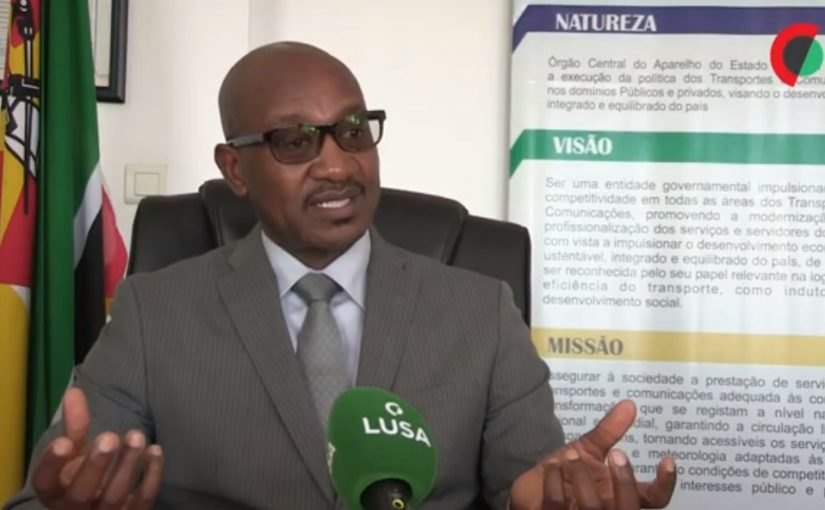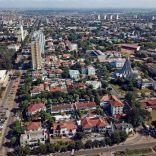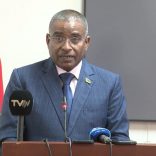Mozambique cuts rate to record low to aid recession economy
Watch: Mozambique ports assert themselves, but we need roads, railways – interview

Screen grab: Lusa
Transport Minister Mateus Magala has said in an interview with Lusa that Mozambican ports are asserting themselves as an alternative on Southern Africa’s Indian Ocean coast, but need to be connected to new roads and railways.
“Our roads were not built to support the loads that are being transported,” he said, and “roads are not the only solution”.
“We had a tradition of rail transport” which “was losing competitiveness”, the minister added.
However, according to Minister Magala, the situation “is changing”, because the country has started “to invest again in railways” so that there will be intermodal connections that match the current context of opportunities for Mozambican ports.
Demand for the ports of Maputo, in the south of the country, Beira (centre) and Nacala (north) has increased considerably in recent years, with regional operators looking for alternatives in the face of pressure on the ports of Durban and Richards Bay in neighbouring South Africa, the minister said.
“It wasn’t an automatic process: it wasn’t that the issues in South Africa that translated into successes for Mozambique. Our country was already prepared and ready to offer competitive advantages,” he argued.
In Maputo alone, according to official data, cargo handling increased from 18.4 million tons in 2020 to 26.7 million tons in 2022, a record result, he said.
Magala says that this is the visible result of total investment of US$700 million (€649 million) since the infrastructures were concessioned in 2003.
“Mozambique has put the necessary infrastructure in place, developed the corridors, disciplined the sector and invested in digitalisation,” he highlighted.
“The level of theft, which was something that scared exporters, is now at zero,” the minister asserted.
So, “when on the other side [in South Africa] things do not work, our country becomes an alternative”, the minister said.
The integration of ports into an effective intermodal system is still a challenge, he underlined.
In addition to revitalizing the rail system, another possible option, in a country with over 2,500 kilometres of coastline, is the sea route itself (cabotage), but this sector is “not cheap”, he warned.
“Coastal shipping only works when there is cargo from one point to another” and the maritime industry “is capital intensive”, Minister Magala added, and the solution involves defining public-private strategies to meet the demands of the sector.
According to the minister, any solution must be accompanied by legislation that encourages investment.
“We have to look at our legal instruments and make them adequate to support the private sector to carry out its task of producing in the most efficient way,” he stressed.
If infrastructure and appropriate legislation can be combined, the “necessary incentives” will be created so that the best means of transport is naturally chosen by those who invest.
Mateus Magala was appointed Minister of Transport and Communications in June 2022, roughly halfway through President Filipe Nyusi’s second term, replacing Janfar Abdulai.
Prior to that, he was Vice President for Human Resources and Corporate Services at the African Development Bank, (AfDB), having been the first Portuguese-speaking person to reach a vice-presidency in the 54 years of the institution’s history.
Watch the Lusa interview (in Portuguese).












Leave a Reply
Be the First to Comment!
You must be logged in to post a comment.
You must be logged in to post a comment.